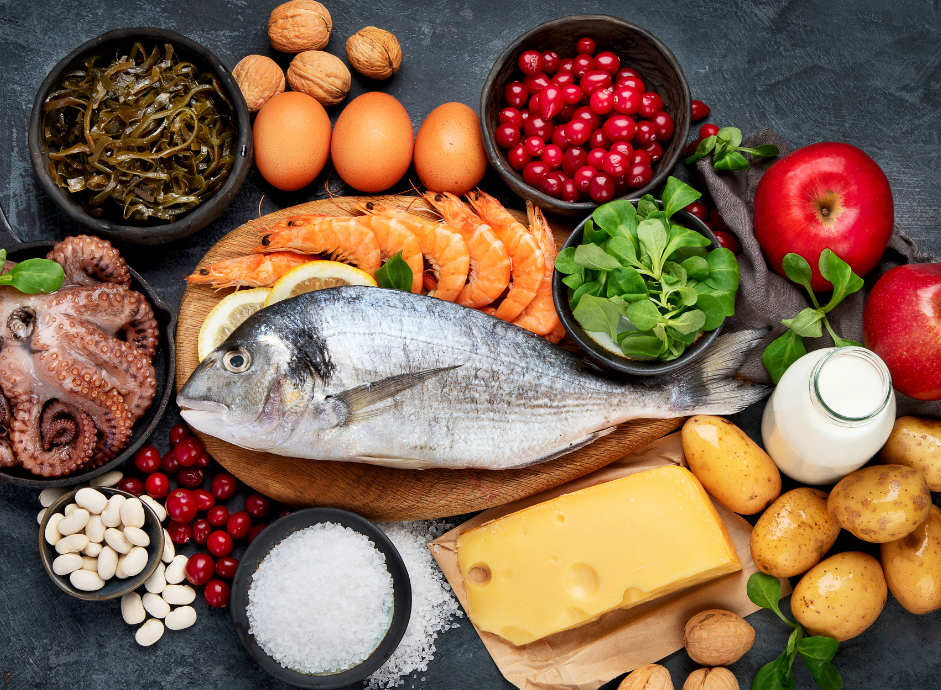- Home
- Forums
- General forums
- Women's Health
- How do you manage your PMS? 7 natural remedies for PMS
How do you manage your PMS? 7 natural remedies for PMS
- 17 views
- 1 support
- 1 comment
All comments

lesmal
AmbassadorGood advisor
![]()
lesmal
Ambassador
Last activity on 26/02/2026 at 21:38
Joined in 2018
1,536 comments posted | 15 in the Women's Health group
83 of their responses were helpful to members
Rewards
-
Good Advisor
-
Contributor
-
Messenger
-
Committed
-
Explorer
-
Evaluator
Thank goodness I don't have this problem now but remember the stress and pain I used to go through with my monthly cycle.
This information was never available in my time; it was merely the attitude of 'get on with it!'
Thank you for all the tips above. I am sure a lot of women reading the article will be most grateful!
See the signature
Les
Articles to discover...
Subscribe
You wish to be notified of new comments
Your subscription has been taken into account








JosephineO
Community managerGood advisor
JosephineO
Community manager
Last activity on 15/07/2024 at 09:21
Joined in 2018
989 comments posted | 18 in the Women's Health group
7 of their responses were helpful to members
Rewards
Good Advisor
Contributor
Committed
Explorer
Evaluator
Friend
Premenstrual syndrome is the official name for everything women go through before their monthly menstrual period starts, with some of those symptoms continuing on through the cycle. For many, though, "syndrome" doesn’t quite describe it.
Instead, it’s more like a condition, an illness, or something akin to the flu. Many women just plain don’t feel good, don’t feel like themselves, and wish the time would go by as quickly as possible.
It may help some to laugh about it. After all, it does happen once a month, generally, and women have to deal with it. But for many, it’s no laughing matter, and finding solutions is critical to being able to go about their normal lives.
Some women may not find enough relief with the above remedies, or may want to avoid potential side effects with more natural approaches. Fortunately, there are seven that have been shown in studies to provide significant relief.
Get more calcium:
Health experts suggest you try food first to get your calcium, but there have been some studies that have shown supplements help—possibly because many women just don’t get enough from food. A 1998 study, for example, showed that symptoms were reduced by 48 percent in women taking 1,200 mg of calcium a day. A more recent 2005 study found that women who consumed more dairy products and who were getting optimal levels of vitamin D were less likely to suffer from PMS. In addition to dairy, leafy green veggies are also great sources of calcium.
Take magnesium supplements:
In addition to calcium and vitamin D, magnesium may also help reduce PMS symptoms. A 1991 study found that women who took a supplement three times a day reduced their pain, and a more recent 2007 study found that women who took magnesium reduced PMS symptoms by about a third. The University of Maryland Medical Center also notes that magnesium supplements can help reduce bloating, leg swelling, breast tenderness, insomnia, and weight gain.
Take vitamin E supplements:
While you’re at it, try some vitamin E, too. The Mayo Clinic states that taking 400 IUs a day reduces hormone-like substances that cause symptoms like breast tenderness and cramps. A 2011 study found that a natural supplement containing vitamin E and essential fatty acids reduced by up to two-thirds symptoms like bloating, tiredness, and aches and pains.
Eat more fatty fish:
As mentioned above, essential fatty acids, like those found in salmon and anchovies, may also help ease symptoms of PMS. A 2013 study found that women who took fatty acid supplements (like fish oil) reduced symptoms of PMS over a period of 45 days, experiencing reduced depression, anxiety, and bloating. After 90 days of taking the supplements, they also had less nervousness, could concentrate better, and had reduced headaches and breast tenderness.
Strike a pose:
If you don’t regularly practice yoga, you may want to start, especially if stress plays a part in your symptoms. A 2015 study reported that after yoga exercise, women with PMS actually had a higher percentage of alpha brain waves—those that signify a more peaceful, relaxed state. They also performed better on an attention test than they did before doing the yoga. An earlier 2011 study also found that yoga helped women with PMS to feel more relaxed.
Try acupuncture:
Studies are mixed, but there is some evidence that acupuncture may give you some relief, particularly if you tend to get depressed during your period. A 2011 review and meta-analysis of ten studies concluded that despite some methodological flaws, the results seemed promising for symptom improvement in women with PMS. A later 2013 review of six studies also concluded that “there is high-level evidence to support the use of acupuncture for treating major depressive disorder.”
Try homeopathic medicine:
This is a medical philosophy based on the idea that “like cures like,” and that with the right stimulation, the body can heal itself. Several studies have found homeopathic remedies to help soothe PMS symptoms. A 2013 study found that women prescribed medicines like “folliculinum” and “Lachesis mutus” experienced reduced irritability, aggression, and tension, as well as bloating and weight gain. An earlier 2001 study also found that homeopathic medicines chosen specifically for each participant improved PMS symptoms by an average of about 30 percent.
Some women report relief with herbal supplements like black cohosh, ginkgo biloba, evening primrose, chasteberry, St. John’s wort, but so far, we don’t have enough quality study results to know for sure. If none of the above treatments help, herbal remedies may be worth a try!
What ones have you tried?